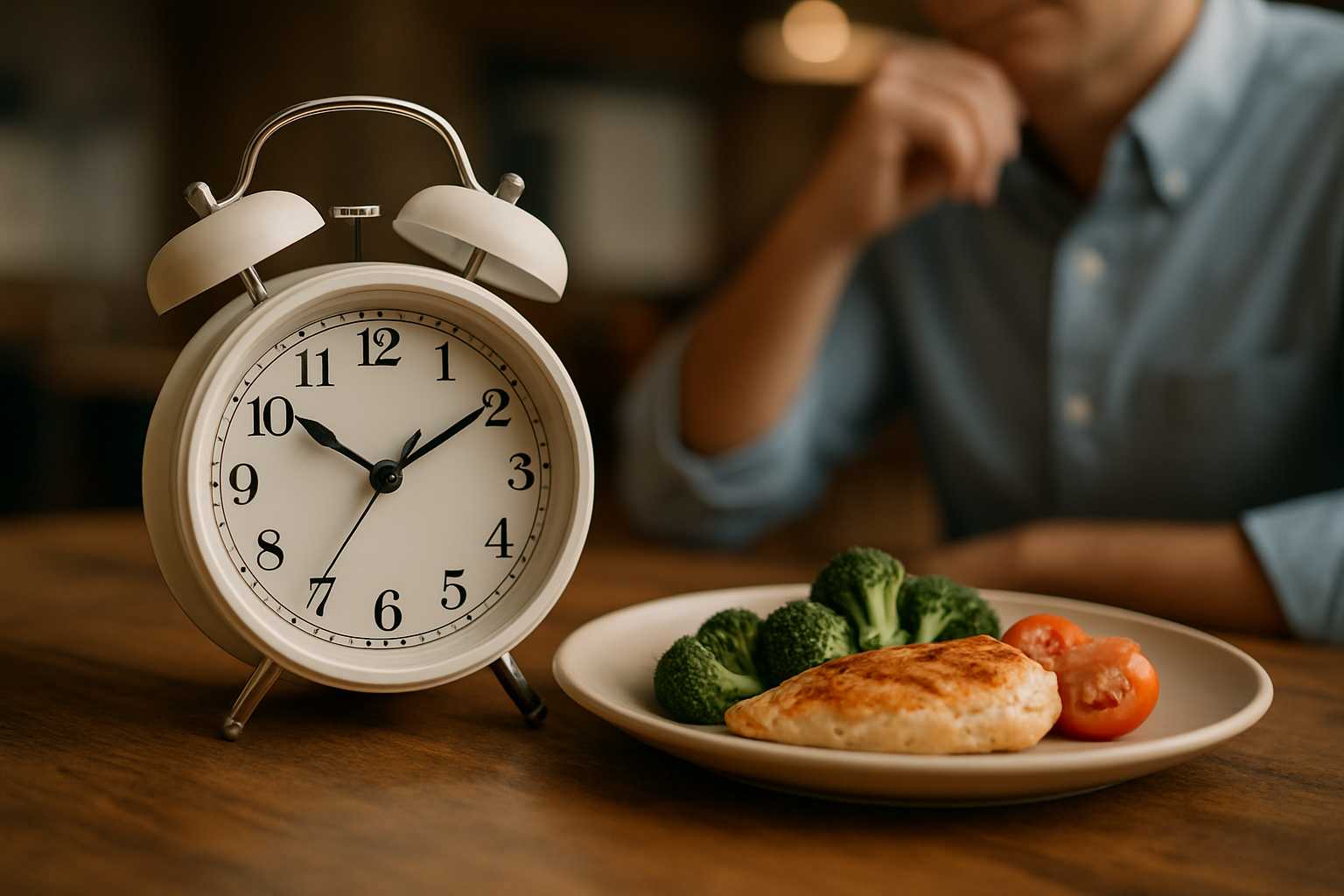Chronodiet: Syncing Your Meals with Your Biological Clock
Can the timing of your meals be just as important as what you eat? Emerging research suggests that when we eat might play a crucial role in our overall health and well-being. Enter chronodiet, a revolutionary approach to nutrition that aligns our eating patterns with our body's natural circadian rhythms. This innovative dietary strategy promises to optimize metabolism, enhance energy levels, and potentially improve longevity. Let's explore how chronodiet is reshaping our understanding of nutrition and time-restricted eating.

Understanding Circadian Rhythms and Metabolism
Our internal clock is primarily controlled by the suprachiasmatic nucleus in the brain, which responds to light and dark cycles. This master clock regulates the expression of genes involved in metabolism, affecting how our bodies process nutrients throughout the day. Research has shown that our insulin sensitivity, glucose tolerance, and lipid metabolism vary depending on the time of day, suggesting that the timing of our meals can significantly impact our health.
Key Principles of Chronodiet
Chronodiet emphasizes eating in harmony with our body’s natural rhythms. This typically involves consuming larger meals earlier in the day when our metabolism is most active and limiting food intake in the evening when our digestive system slows down. Some key principles include:
-
Eating within a 10-12 hour window
-
Having the largest meal of the day at breakfast or lunch
-
Avoiding late-night snacking
-
Aligning meal times with natural light-dark cycles
Potential Benefits of Chronodiet
Adopting a chronodiet approach may offer several health benefits:
-
Improved insulin sensitivity and blood sugar control
-
Enhanced weight management
-
Better sleep quality
-
Increased energy levels throughout the day
-
Potential reduction in the risk of chronic diseases
Implementing Chronodiet in Daily Life
Transitioning to a chronodiet doesn’t have to be drastic. Start by gradually shifting your meal times to align with your circadian rhythm. Here are some practical tips:
-
Aim to eat your first meal within 1-2 hours of waking up
-
Make lunch your largest meal of the day
-
Have a lighter dinner at least 3 hours before bedtime
-
Avoid eating after 8 PM
-
Stay hydrated throughout the day
Challenges and Considerations
While chronodiet shows promise, it’s essential to consider individual differences and lifestyle factors. Some people may find it challenging to adjust their eating schedules due to work or social commitments. It’s crucial to listen to your body and consult with a healthcare professional before making significant changes to your diet.
Chronodiet and Exercise
Timing your workouts in relation to your meals can also play a role in maximizing the benefits of chronodiet. Some studies suggest that exercising in a fasted state in the morning may enhance fat burning and improve insulin sensitivity. However, the best time to exercise ultimately depends on individual preferences and schedules.
The Future of Chronodiet Research
As interest in chronodiet grows, researchers are exploring its potential applications in various health conditions. Ongoing studies are investigating how chronodiet principles might be used to manage conditions such as diabetes, cardiovascular disease, and even certain types of cancer. The field of chrononutrition is rapidly evolving, and we can expect to see more personalized approaches to timing-based nutrition in the future.
Chronodiet Wisdom: Tips for Optimal Timing
-
Rise and shine with protein: Include protein-rich foods in your breakfast to kickstart your metabolism
-
Carb-load wisely: Consume complex carbohydrates earlier in the day when insulin sensitivity is highest
-
Afternoon pick-me-up: Have a small, nutrient-dense snack in the mid-afternoon to maintain energy levels
-
Herbal nightcap: Replace late-night snacks with caffeine-free herbal tea to support better sleep
-
Weekend reset: Use weekends to realign your eating schedule if weekdays prove challenging
In conclusion, chronodiet offers a fresh perspective on nutrition by emphasizing the importance of meal timing in addition to food quality and quantity. By aligning our eating patterns with our body’s natural rhythms, we may unlock new pathways to improved health and well-being. As research in this field continues to evolve, chronodiet could become a powerful tool in our quest for optimal nutrition and longevity.






